Do you have friends from the past that you haven’t seen again? Imagine that after a long time you are going to see an old friend again. What would you like to ask him/her? Would you like to know what they have done in their lives? Could you tell them about your experiences? Now you are going to review the form you need to ask those questions: Present Perfect. Remember that we use the present perfect to express our experiences in life. Sometimes we need to be more specific about the time when those experiences happened. Look at the following cartoon:
Did you like the cartoon? Funny, right? The man is asking ‘how long he has worked in that place’, and the other man answers the specific moment when he started ‘since I heard you coming’. To specify the time when your experiences began we use the prepositions since and for.
In this section, you will review the present perfect form to talk about your experiences. Mostly you will explore the use of the prepositions since and for to specify the time. This is very important because this will help you to give more information when you express your life experiences.
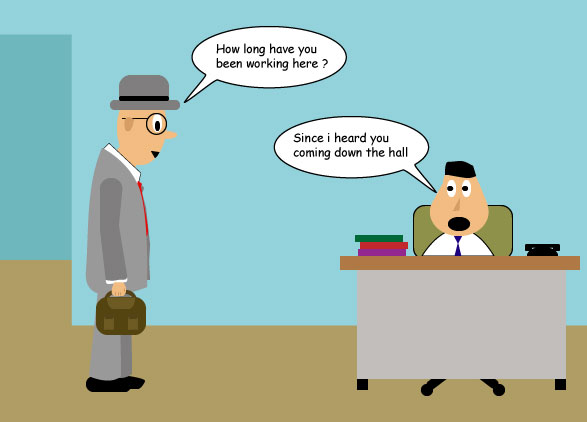
By the end of this lesson, you will: Use actions and situations that began in the past and continue in the present using the prepositions for and since. You will review the present perfect tense and vocabulary related to routines to express previous experiences. To complete the objective, it is essential that you complete all the activities to end the topic successfully. Are you ready to start? Let's begin.
What’s the best experience you have ever had? Look at the pictures, have you had any these experiences before?
Present Perfect is formed with the auxiliary HAVE or HAS and the past participle of the verb:
To form the negative, just add not (n’t) to the auxiliary:
Once you have checked this form, you share any experience you have ever had in the forum. Go to the forum and tell your classmates 3 experiences you have had in your life and one you haven’t had, but would like to do it.
For example:
I have eaten French food, but I haven’t studied French. It can be interesting.Be sure in your participation you include:
To post your contribution, click on the Add button to add a new discussion topic. Then write the Subject and type your comment in Message. Once you finish, click on Post to Forum.
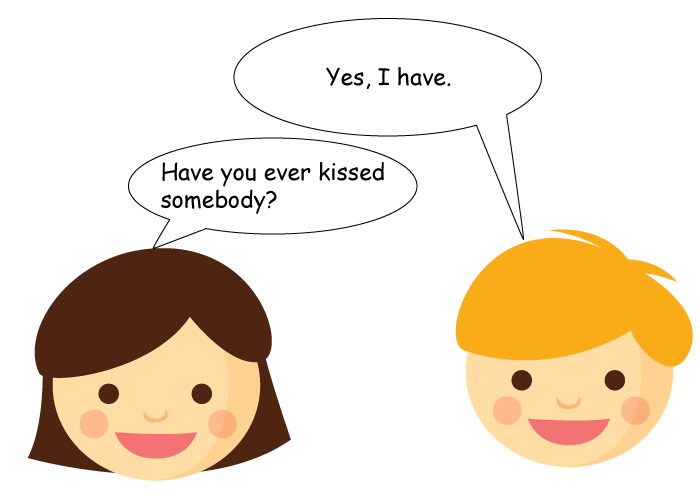
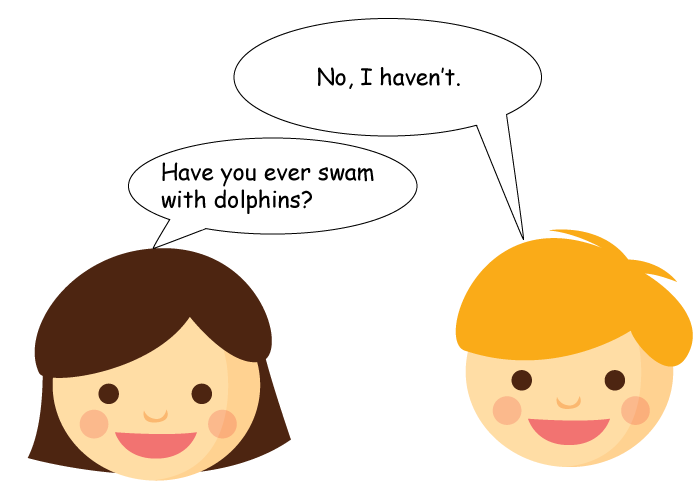
So far, we have talked about your experiences, and in the forum activity, you could know more about your classmates.
Now it is time to study the main topic of our lesson.
Sometimes, it is interesting to know the period, or the specific time your experience lasted or when it started. Would you know to express this and how to do it? To do that, we use the prepositions FOR and SINCE. We use these prepositions to express HOW LONG something has happened.

SINCE is used to describe the specific time when the action began. It helps you to express the starting point of the action, in this case, your experience.
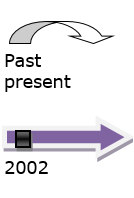
SINCE expresses the starting point of an action that you started in the past but continues in the present. It refers to the specific point in the past. Example:
I have studied English since I was in high school
The specific point when I started studying was in high school.
They have lived in New York since 2002
They started living in New York in 2002 and continue living there until today.

Some of the expressions you can use with the preposition SINCE are:

FOR is used for general periods of time. It helps you to express duration of the action, in this case, your experience.
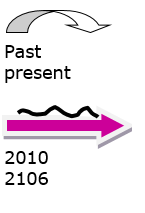
For refers to the period of time and action has happened. It is the period since the past to the present. It is the duration of the action. Look at the examples:
She has driven for six years.
She began to drive six years ago, but we refer to the period of six years that she has done that activity.
His father hasn’t played professionally for 20 years.
The period he hasn’t played professionally is 20 years.

Some of the expressions you can use with the preposition FOR are:

| For | Since |
|---|---|
 |
 |
| a life time | 1999 |
| three months | Today |
| five hours | Friday |
| some years | I left school |
| two days. | Last summer |
We will check if the lesson was clear and you can identify the difference when using the prepositions for and since for talking about experiences. This is only practice so you can try the exercise as many times as you want.

Activity 1
Experiences in life make us who we are. Some experiences change us for good and other for bad. Some people face life experiences which are just inspiring.
Read the text about Nick Vujicic's life experiences and discover that anything is possible. Get the main idea from each paragraph, then drag it and put them in the correct order.

Derungs, S. (2011). Nick Vujicic. Taken from: https://commons.wikimedia.org/wiki/File:Nick_Vujicic_at_the_World_Economic_Forum_Annual_Meeting,_Davos,_Switzerland_-_20110130.jpg
Activity 2
Now that you have read about this incredible man let’s practice reading comprehension. It is an important skill to develop to understand better what we are reading. Based on the previous text, answer True (T) or False (F).

Activity 3
In this activity, you will listen for general ideas. Liz and Mark have seen each other after a long time. Listen to the dialogue and answer the questions True (T) or False (F).

Activity 4
Listen to the dialogue again and complete the specific information. Who… (L) or Mark (M)?
Activity 5
In this activity you will listen to the dialogue for the third time, then you will write down the missing words.
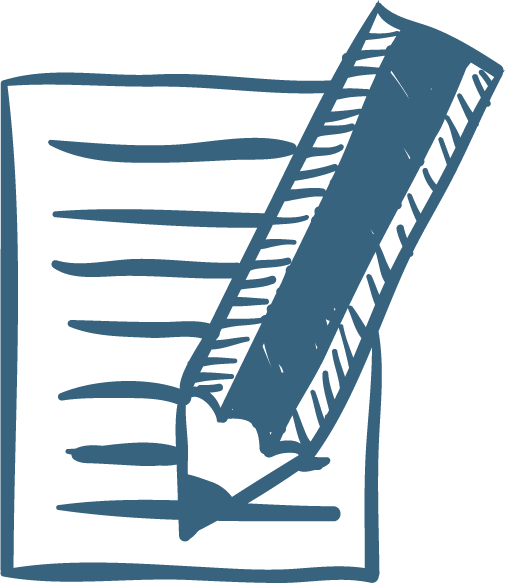
Activity 6
Imagine you are going to write a mail to an old friend you haven’t seen for a long time.
What experiences would you like to tell him/her? Tell him/her some things you have done recently.
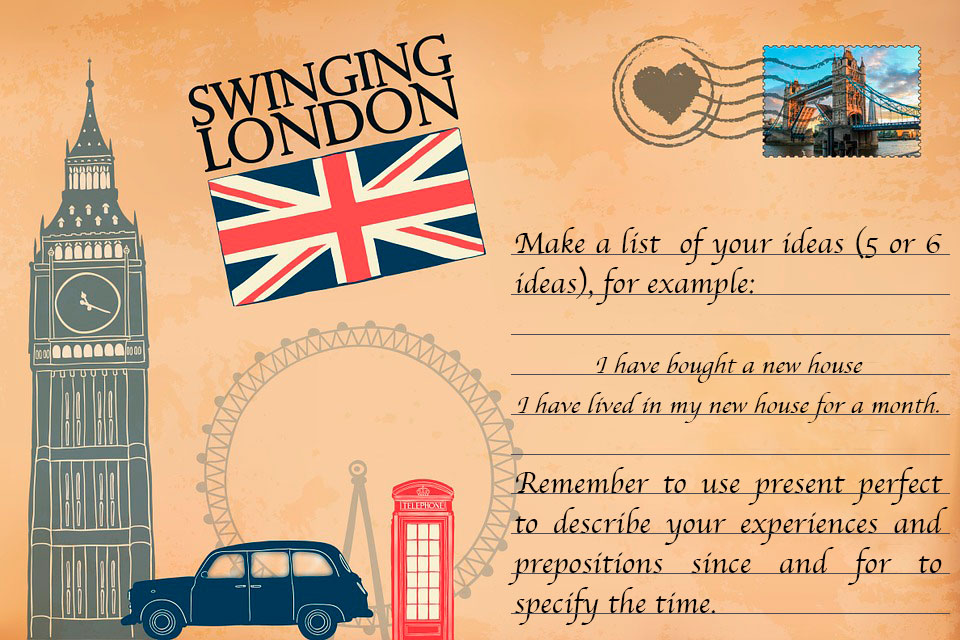
You will use the following rubrics to evaluate yourself.
Now, use your ideas to write a 3 paragraph mail (80-100 words) mail to your friend.

Activity 7
We would like to know some of your experiences.
Read and answer the questions with information about you.
In your answers include the present perfect tense to express your experience and the prepositions for and since to specify the time.
Questions:Make a recording with your answers.
Click here to listen to an example.

Now record yourself. When you finish, use the following rubrics to know your score.
In this test, we will check your ability to identify the correct expressions for using the prepositions for or since.